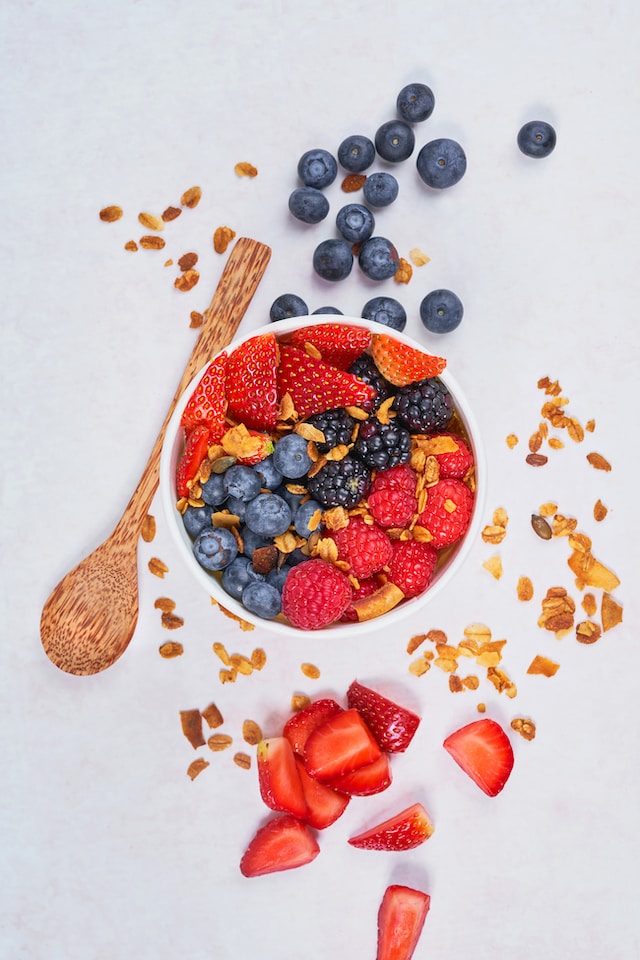Welcome to a journey that could transform your daily life. In this article, we’re diving into the connection between what you eat, how you feel, and how much you get done. No fancy jargon here—just straightforward insights that matter to you.
Have you ever noticed how your energy levels or your mood can take a nosedive after a heavy, greasy meal? Or conversely, how a nutritious lunch can leave you feeling ready to conquer the world? It’s not just a coincidence; there’s a powerful link between your diet, your mood, and your productivity.
Understanding this link is crucial because it can impact every aspect of your day, from your interactions with colleagues to your overall sense of well-being. Imagine feeling more focused, less stressed, and ready to tackle your to-do list with gusto—all by making simple changes to what you eat.
Understanding the Connection Between Diet and Mood
You might not realize it, but the food you eat has a direct influence on how you feel. Let’s break it down so you can see just how closely linked your diet and mood are.
Food’s Impact on Mood
Picture this: You’ve just had a big, hearty breakfast with all your favorite comfort foods. How do you usually feel afterward? A bit sluggish, right? That’s because heavy, greasy meals can lead to a post-meal slump. On the flip side, a light, balanced meal can leave you feeling energized and ready to take on the day.
But why does this happen? Well, it’s all about how different foods affect your brain. Certain foods can trigger the release of feel-good chemicals like serotonin, while others can lead to mood swings and irritability. Understanding these effects can help you make smarter food choices to keep your mood on an even keel.
Mood-Boosting Foods
Now that you know food can impact your mood, let’s talk about some of the heroes of the food world—mood-boosting foods. These are the ones that can put a smile on your face even on a gloomy day.
- Fruits and Vegetables: Packed with vitamins and antioxidants, these colorful goodies can lift your spirits and keep you feeling fresh.
- Whole Grains: They release energy slowly, helping you stay focused and in a good mood throughout the day.
- Omega-3 Fatty Acids: Found in fatty fish like salmon and walnuts, these can help reduce anxiety and boost your mood.
- Protein: Lean proteins like chicken, beans, and tofu can provide a steady supply of amino acids that your brain needs to produce serotonin.
The Role of Nutrients
Now, let’s dive a bit deeper into the science behind it. It’s not just about specific foods; it’s also about the nutrients they contain.
- Vitamins and Minerals: Nutrients like vitamin D, B vitamins, and magnesium play crucial roles in regulating your mood. When you’re deficient in these, it can lead to mood disorders.
- Amino Acids: These are the building blocks of neurotransmitters, the messengers in your brain that control your mood. Eating foods rich in amino acids can help keep your mood stable.
The Impact of Diet on Productivity
Have you ever noticed that what you eat can affect how productive you are during the day? Let’s explore the connection between your diet and your ability to get things done.
Foods that Boost Productivity
First, let’s talk about the good stuff—foods that can supercharge your productivity.
- Complex Carbohydrates: Foods like whole grains, oats, and brown rice release energy slowly, providing you with a steady stream of fuel. This helps you stay focused and alert throughout the day, making it easier to tackle tasks.
- Lean Proteins: Chicken, turkey, tofu, and beans are packed with protein, which is essential for building and repairing tissues in your body, including your brain. Amino acids from protein-rich foods help produce neurotransmitters that improve concentration.
- Healthy Fats: Omega-3 fatty acids, found in fish like salmon and nuts like walnuts, can enhance cognitive function, boost memory, and reduce mental fatigue.
- Antioxidant-Rich Foods: Berries, leafy greens, and colorful fruits are loaded with antioxidants that protect your brain from oxidative stress and may improve cognitive function.
The Importance of Balanced Meals
It’s not just about individual foods; it’s about how you structure your meals. Skipping meals or loading up on sugary snacks can lead to energy crashes and mood swings, both of which are productivity killers. Instead, aim for balanced meals that include a mix of carbohydrates, protein, and healthy fats.
Tips for a Productivity-Boosting Diet
Now that you know what foods can enhance your productivity, here are some practical tips to help you incorporate them into your daily diet:
- Plan Your Meals: Take a few minutes to plan your meals and snacks for the day. This will help you make healthier choices and avoid grabbing whatever is convenient.
- Stay Hydrated: Dehydration can lead to fatigue and decreased focus. Make sure to drink enough water throughout the day.
- Snack Wisely: When you need a snack, reach for nuts, yogurt, or a piece of fruit instead of sugary treats. These snacks provide a longer-lasting energy boost.
- Limit Caffeine and Sugar: While a cup of coffee can provide a temporary energy boost, too much caffeine or sugar can lead to crashes later on. Use them in moderation.
The Role of CBD in Diet and Mood Regulation
You’ve probably heard a lot about CBD lately. It’s become quite popular, but what exactly is it, and how can it affect your mood and overall well-being?
How CBD Influences Mood
CBD interacts with your body’s endocannabinoid system, a complex network of receptors that help regulate various functions, including mood. By interacting with these receptors, CBD may have the following effects on your mood:
- Reducing Anxiety: Some studies suggest that CBD may help alleviate symptoms of anxiety, promoting a sense of calm and relaxation.
- Improving Sleep: Better sleep often leads to a better mood. CBD can help regulate sleep patterns, ensuring you wake up feeling refreshed.
- Stress Reduction: CBD may help your body manage stress more effectively, preventing it from taking a toll on your mood.
Potential Benefits and Limitations
While CBD has shown promise in improving mood and overall well-being, it’s essential to understand both its potential benefits and limitations.
Benefits:
- Natural and non-intoxicating.
- May help with anxiety, stress, and sleep issues.
- Easy to incorporate into your diet through CBD-infused products.
Limitations:
- Effects vary from person to person.
- More research is needed to fully understand its long-term impacts.
- Quality and regulation of CBD products can vary.
Before adding CBD to your diet, it’s a good idea to consult with a healthcare professional, especially if you have any existing health conditions or are taking medication.
Practical Diet Tips for Enhancing Mood and Productivity
Now that you understand the impact of diet on your mood and productivity, let’s get practical. Here are some simple yet effective tips to help you make dietary changes that can boost your well-being and efficiency.
1. Choose Whole Foods
Opt for whole foods like fruits, vegetables, whole grains, lean proteins, and nuts. These foods are packed with nutrients that support both your physical and mental health. They provide a steady supply of energy, helping you stay focused and alert.
2. Balance Your Plate
Create balanced meals by including a mix of carbohydrates, protein, and healthy fats. For example, a balanced lunch might include brown rice (carbohydrates), grilled chicken (protein), and a side of broccoli (healthy fats and fiber). This combination can keep you feeling full and energized.
3. Snack Smartly
Snacking can be a great way to maintain your energy levels throughout the day. Opt for nutrient-rich snacks like yogurt, nuts, or a piece of fruit. Avoid sugary snacks that can lead to energy crashes.
4. Stay Hydrated
Dehydration can affect your mood and concentration. Make sure to drink enough water throughout the day. Consider herbal teas or infused water for a flavorful twist.
5. Plan Your Meals
Taking a few minutes to plan your meals can make a big difference. It helps you make healthier choices and ensures you have the right ingredients on hand. Plan your meals for the week, create a shopping list, and stick to it.
6. Prep Ahead
Busy schedules can make it challenging to eat healthily. That’s where meal prep comes in. Spend some time on the weekend preparing meals or snacks for the week. Having healthy options readily available makes it easier to stay on track.
7. Mindful Eating
Practice mindful eating by savoring each bite and paying attention to your body’s hunger cues. Avoid distractions like phones or TV while eating. This can help prevent overeating and promote a healthier relationship with food.
8. Don’t Skip Breakfast
Start your day with a nutritious breakfast. It kickstarts your metabolism and provides essential nutrients. A balanced breakfast can improve your mood and concentration throughout the morning.
Wrapping Up:
Your diet isn’t just about satisfying your hunger; it’s a powerful tool that can shape your mood and productivity. We’ve learned that certain foods can boost your spirits, while others can leave you feeling sluggish. By choosing wisely and balancing your meals, you can unlock a more energetic and positive you.
We’ve also explored the potential benefits of CBD in regulating mood and how simple dietary changes can lead to a happier, more efficient you. Remember, it’s not about perfection but progress.




